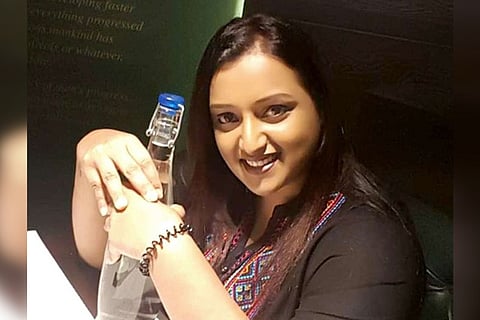

On one hand, the controversial Kerala gold smuggling case has exposed an international smuggling syndicate, allegedly in the garb of diplomatic or consular privileges and immunity. On the other hand, the case has turned the spotlight on the questionable hiring and working practices of government offices — in this case, the Kerala government and the United Arab Emirates (UAE) Consulate in Thiruvananthapuram.
Indian diplomats — both former and in service — are flummoxed and find it odd that Swapna Suresh, who was hired by a private company for a Kerala government project, was also engaged by her former employer, the UAE Consulate, which is a foreign government agency.
While the nature of her job with the Consulate is murky and unclear at this point — whether it was part-time or based on special arrangement — everybody seems to be asking the same question: “How can a person work for two government agencies at the same time?”
Swapna, who is at the centre of this controversy more than the other accused in the case, filed an anticipatory bail on Thursday, even while she remains absconding.
In her bail plea, Swapna said she worked as an Executive Secretary at the UAE Consulate from 2016 to 2019, and allegedly resigned with a certificate appreciating her service to the Consulate. She was then hired as a contract staff member (reportedly senior consultant) by private company PricewaterhouseCoopers (PwC). The auditing firm hired Swapna for the Kerala government’s Space System Park project, which will be implemented by the state Information Technology (IT) Department.
However, in the bail plea, Swapna also admitted that after her appointment to the Kerala government project, the Consul General of UAE “again sought her assistance in various administrative matters” since she has experience in the Consulate operations. She said she worked with the Consulate on ‘work on request basis’ and “obeyed” the direction of the UAE Consulate General.
Even while working under the Kerala government, she said she worked as the “secretary under work on request basis” for the UAE Consulate officer and called the Customs on July 1 regarding the delay in his consignment (the consular baggage) from the Arab country.
"It is illegal to work for two governments at the same time, but possible. Swapna might have had a so-called ‘working arrangement’ with the Consulate,” said a former Indian diplomat who has been in the foreign service for more than 30 years.
“She may be doing it for some other considerations. Even if she left the Consulate, she may have been engaged by the Consulate, which is not unusual. It could mean that she wasn’t sacked by the Consulate, and that it was a friendly departure,” the former diplomat said, alluding to some reports that stated that Swapna was fired from the Consulate over some irregularities.
A source in the state government also pointed to a working system in Kerala. “Under this unspoken system, a person may be attached to one part of the government and draw a salary from there. However, the same person can work in another department, by what is called a ‘work adjustment’. I have never heard of such an arrangement anywhere else,” the source said.
However, in this case, Swapna was not working for two different departments of the Kerala government, but supposedly for a foreign government.
According to a former Director General of Police (DGP) in Kerala, per the usual procedure, all candidates are subjected to a background verification before appointment for government services. This applies to both contract and regular employees. If it is an urgent appointment, the verification is carried out after the person is inducted.
“If the person is recruited through an agency, the latter should first verify the candidate’s background, and later the police, too, are supposed to verify his/her background. If there is a criminal or court case against the candidate, it will impede his/her appointment,” said the former police official.
In this case, Swapna was recruited by a Delhi-based third-party agency even while she reportedly has a case against her in the Kerala High Court.
When the smuggling case snowballed into a controversy, PwC issued a statement that Swapna was on the payroll of this agency, which specialises in short-term resource provisioning. The company also said that according to the background verification conducted by the third-party agency, her previous employers — UAE Consulate and AirIndia Sats Airport Services Private (airport service company) — confirmed that she is ‘eligible to be rehired’.
While Swapna’s “professional experience was accurate”, it said that the verification process did not throw up any criminal record against her.
However, according to reports, Swapna was interrogated by the Crime Branch for falsely accusing a colleague at AirIndia Sats for sexual harassment. She reportedly admitted to illegally framing her former colleague. There is even a case against Swapna in the Kerala High Court dating back to 2017 that is yet to be closed.
Procedurally, Swapna should have been vetted because she worked for a foreign government. “But the Kerala government’s argument is that she was appointed by a private agency and that they didn’t look into it. That is unusual. They should have directly vetted her appointment, particularly when she came from a (foreign) Consulate. That is all the more reason to investigate before appointing,” the former diplomat told TNM.